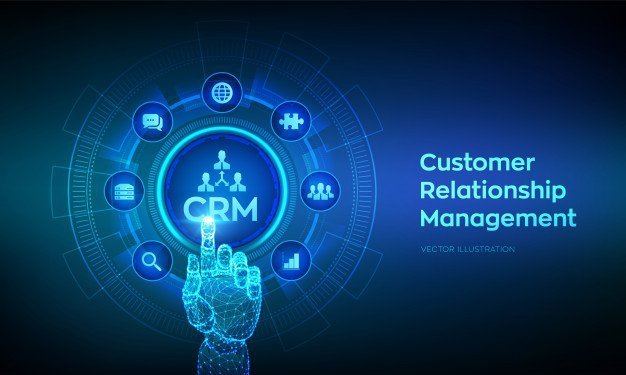Which Are The Best CRM Software For Small Business & How Do You Choose Them?
by Abdul Aziz Mondal Technology Published on: 29 February 2020 Last Updated on: 20 May 2025

There are many choices out there when it comes to buying the best CRM Software for small business. However, it is important to remember that you should choose one based on specific essential considerations.
CRM, or Customer Relationship Management, is becoming one of the most emphasized verticals in any organization. The most beneficial aspect of CRM is helping the Sales and Marketing teams throughout the buyer’s journey.
The industry is evolving, and all your competitors use CRM software. Traditional strategies and tactics will not cut it in this technology and data-driven world. Brands need to act when it comes to CRM.
How will you choose the best CRM software for your business? Let us help you out.
Five Things to look for when choosing the right CRM Software: The List
1. Evaluate the needs of the Business and see what loopholes CRM can plug
Sales in businesses following outdated strategies mean ten people having ten different datasheets. CRM software aims to help bring all these different elements into one common platform.
A good CRM software helps you track all your potential customers and enables the sales team to act promptly. It allows an organization to proceed with its sales and marketing in an organized manner.
In this regard, whitehat offers a fantastic option that can align all your CRM needs on one standard dashboard. This can help businesses of all sizes streamline their processes and build efficiency. CRM software can also be used to display all relevant information so that business owners can make speedy decisions for the benefit of the business.
2. Choose a CRM Software that Helps Engage with Existing Customers
The end goal of any CRM software is to engage and communicate with existing and potential customers. With so many competitors out there, any organization would ideally want to retain its existing customers.
Any business should always go for a CRM platform that aligns its Newsletter Marketing teams with its other teams. In addition, your CRM should also work with text messages, WhatsApp chats, and other forms of digital communication.
3. Assess Whether You Need a Cloud or a Physical On-Premise CRM
It is essential that companies choose between the above-mentioned options based on their needs. A cloud-based solution involves buying CRM software from a vendor. You can access the dashboard only when you are online.
An On-Premise CRM means that you will need to host locally on your end. It involves setting up the right digital teams to help you maintain the processes. I have found that cloud-based vendors are a good option for businesses venturing out into the CRM ecosystem.
4. Different Departments Have Different Uses for CRM Software
Your sales team will be interested in one aspect of the CRM, while your communications team will be interested in something else. You should remember that there are different plans and pricing for the kind of features your respective departments will need.
From a business perspective, not all teams will be able to fully utilize all the features of good CRM software. Hence, it is vital to prioritize what you want to do with the CRM software.
5. Check Whether the CRM Integrates With Other Software in your Organization
Any essential CRM software will integrate with your G-Suite or MS Office. However, is it integrated with your ERP, HR software, website, and social media? These are something that you need to pay attention to.
If you are confused regarding this, you can always look up any CRM vendor’s Media Buying Software FAQs. You will get a good idea of the capabilities of CRM software.
Bonus Section: Best CRM Software For Small Businesses
We have covered the basics of finding the right CRM software for small businesses. However, the article would only be complete with a listicle about the same.
Therefore, in this section, we would like to explore the best CRM software that small and medium-sized businesses can use.
However, remember that this is not a ranking list but an informative one. As a result, you can approach this list in whichever order you desire.
Therefore, let us dive right in and look for the perfect CRM for your business.
Vtiger
First up is Vtiger. Vtiger is a well-known name in the world of CRM, as it offers many benefits and features. These benefits and features include deal management, resource management, deadline reminders, contacts, etc.
Flowlu
Flowlu is a powerpack CRM for its price. The software specializes in managing smaller teams. However, that does not mean that the application cannot handle a big team. The best part is that it has complete iOS and Android support.
ZOHO
CRM software arrays are for the long term. Therefore, you need to choose something that is reliable and suitable for the longer term. Thankfully, Zoho is one of those applications. Zoho gives its clients the space and computational power of scaling. Hence, it is the perfect software for growing a business.
HubSpot
HubSpot is like Robert Downey Jr. of the CRM world. It is undoubtedly one of the most popular CRMs at present. In fact, the best part about this CRM is its widespread popularity and impeccable support.
Capsule
Capsule is a reliable CRM that combines precision with brevity. In summation, the capsule can handle anything that you throw at it. It comes with an intuitive UI/UX design that helps the software to be easy on the eyes and usage. Therefore, it is a tough contender for the crown of best CRM software for small business
Conclusion
Some years back, only big companies could afford and fully utilize the benefits of CRM software. However, many software providers are now providing quality CRM software at affordable prices.
No business, whether big or small, can afford to ignore the advantages, which a good CRM brings. Through this article, we have tried to enlighten those who are interested as to how they should choose the right CRM for their business.



































































































